Photographs: Reuters Mansi Taneja
For years, buyers have been at the mercy of property developers. But that is beginning to change.
After the Allahabad High Court ordered on April 11 the demolition of two towers in Supertech Emerald Court in Noida, Vashisth Sharma has been inundated with phone calls from others who want to take action against their builders.
Sharma, a pilot with Jet Airways, was spearheading the campaign along with SBS Teotia, a retired Central Reserve Police Force officer, against Supertech through the Resident Welfare Association (RWA) of Emerald Court.
When innumerable visits to the company’s office and the Noida Authority didn’t yield any result, they approached the court — and got a favourable verdict.
“RWAs will get encouraged after this verdict. We are already advising many RWAs in this area to fight against the irregularities indulged in by realty developers. But we don’t intend to do it in a professional manner,” says Sharma when asked if Teotia and he would like to set up some consultancy on such issues. The RWA petition filed in the Allahabad High Court alleged that the construction of the towers was “in complete violation of the UP Apartment Acts”.
…
Finally, flat buyers win the battle against corrupt builders
Photographs: Reuters
However, Supertech is planning to file a review petition against the order as it maintains it had all the approvals in place. It was also told by the court to refund money to the buyers with 14 per cent interest compounded annually.
This is not a one-off case. There are many such cases pending before the courts and these will come up for hearing in the coming months.
The rising activism of aggrieved buyers against the developers on issues ranging from delay in delivery to quality of construction, irregularities in project implementation and departure from promised amenities has come after years of frustration and helplessness.
All these have been compounded by the absence of a regulator for the industry, leaving the buyers only the option of taking to the street or initiating legal action against the developers.
…
Finally, flat buyers win the battle against corrupt builders
Photographs: Reuters
“Buyers are active like never before,” says Sanjay Sharma, managing director, Qubrex, a real estate consultancy firm. “With such a strong online medium, an increasing number of buyers are joining hands to protest against the developer’s tyranny, especially when the developer has no explanations for delayed deliveries.”
A few years ago, the RWA of DLF’s The Belaire project in Gurgaon had approached the Competition Commission of India (CCI), maintaining that DLF had misused its dominant position in the market.
The petitioners alleged DLF had built more floors than originally planned. CCI imposed a fine of Rs 630 crore on DLF, but this was stayed by the Competition Appellate Tribunal (Compat).
But far from being chastised, DLF is again under CCI’s scanner for allegedly drafting a one-sided agreement with flat buyers in its New Town Heights project in Gurgaon.
…
Finally, flat buyers win the battle against corrupt builders
Photographs: Reuters
The consumers’ agitation had led to developers making changes in the buyer’s agreements. They now arm themselves by stipulating longer delivery deadlines than earlier, a step that they expect will minimise their legal liabilities.
Now, instead of two or three years, the developers promise delivery of flats in five years in the case of skyscraper residential buildings. The purchase agreements also include revised penalty norms against failure to deliver on time, aimed mainly at instilling confidence in buyers.
Says Pankaj Kapoor, managing director, Liases Foras: “The developers are making firewalls around themselves. With the new proposed regulatory bill, developers are being extra cautious in what they commit.”
Earlier the buyers had little say in these matters, says Ashutosh Limaye, head, Research and Real Estate Intelligence Service, Jones Lang LaSalle India. He points out that some of the earlier agreements are being redrafted. “Official approvals for the projects are taking longer,” he says, “and execution time has increased. It is, therefore, logical to have the agreements redrafted.” Funding issues have also proved a hurdle in completion of construction.
…
Finally, flat buyers win the battle against corrupt builders
Photographs: Reuters
According to industry experts, while the committed delivery time is often three years, delays can range from 18 months to 24 months, on top of a grace period of six months. It is estimated that 200,000 to 300,000 units are pending delivery across India.
There is oversupply in the market, but sales have been dipping due to the economic slowdown. As Kapoor explains, “There is a wide gap between affordability and pricing, which is why sales are not taking place.” He claims that blaming oversupply for the dip in buying enthusiasm is not correct, and says, “The consumers have simply been out-priced.”
After poor deliveries in successive years, things began looking up in 2013 — of the committed 406,000 units, 71 per cent, or 290,000 units, were delivered, according to real estate research firm PropEquity.
…
Finally, flat buyers win the battle against corrupt builders
Photographs: Reuters
Liases Foras reported that for the quarter ended December 2013, the inventory level (time taken to clear the stock at the existing pace of absorption or purchase) across the country stood at 30 months.
An inventory level of eight months is indicative of a healthy market. The Mumbai Metropolitan Region recorded the highest inventory level of 46 months.
Another issue highlighted by the Allahabad HC order on Supertech Towers is the FAR (floor area ratio) of a building. It is the ratio of the total area of a building relative to the total area of the plot on which the building is located. An FAR of 2, for example, would mean that the total floor area of a building is double the area of the plot on which it is built.
…
Finally, flat buyers win the battle against corrupt builders
Photographs: Reuters
A higher FAR allows developers to make more apartments in a building and earn larger profits, while bringing down the overall cost of construction.
For buyers, it means higher density in a building, resulting in more people sharing common infrastructure, such as a swimming pool, club and other amenities.
When FAR goes beyond what is originally planned and approved, the infrastructure (including electricity and water) starts to feel the pressure.
FAR was one of the bones of contention in the Supertech case. The company chairman, R K Arora, says the revised building plan of the towers in Emerald Court was approved under the purchasable FAR scheme of the Noida Authority.
…
Finally, flat buyers win the battle against corrupt builders
Photographs: Reuters
There are 857 apartments in Apex and Ceyane towers in Emerald Court, of which 600 have been sold. The RWA had charged the Noida Authority of permitting the original plan for 24 floors to be increased to 40 levels flouting building byelaws.
In March 2012, it had sanctioned the increase of the towers’ height from 66 metres to 121 metres. This was done, say the petitioners, without allowing for the mandatory distance of 16 metres from an adjoining block, making the towers unsafe, apart from blocking air and light.
The RWA also pointed out that Supertech had not taken the consent of 60 per cent of its buyers before increasing FAR, as provided for under the UP Apartments Act.
As the Allahabad High Court noted, “The time has come when everyone should realise that rule of law is not a purchasable commodity and illegalities will not be tolerated merely because the builder has taken protection against the sanction which, admittedly, is illegal and in violation of building regulations.”
According to experts, the ruling on Supertech’s project might open up a whole lot of cases, especially in Noida and Noida Extension, where authorities had allowed a revised FAR.
….
Finally, flat buyers win the battle against corrupt builders
Photographs: Reuters
They would, like Supertech, have to return money to the buyers at an interest, and this could derail the plans of many realty developers. Equally, it would also be difficult for the buyers in the projects to exit with a substantial appreciation of their investments.
Supertech itself might not suffer any permanent loss. Says Sanjay Sharma of Qubrex: “Their loss will only be of imaginary profits. It is a big developer. Even if the court’s order is implemented, there won’t be much impact as the company has invested a part of the buyers’ money in the construction and they will be able to refund buyers with the kind of portfolio they have.” A refund would perhaps gladden only those who bought flats as investment, not those who bought homes.
It is a tense time for the real estate industry. The economic slowdown has affected both construction and sales. Buyers and developers are in a wait-and-watch mode, hoping market sentiments will improve after the general elections.
Developers are also holding out on new launches, seeing how, despite increasing cost of land and construction and declining sales last year, the prices did not fall as expected.

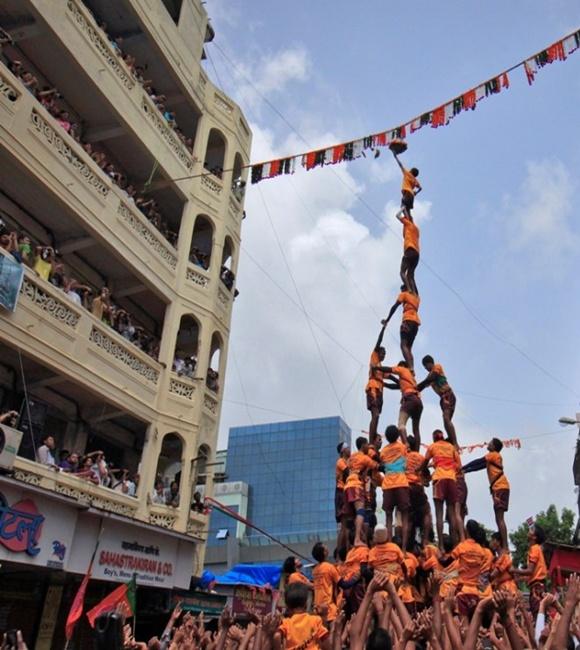
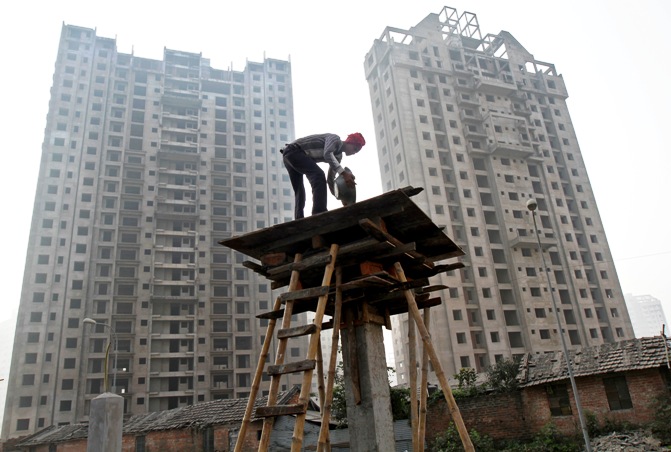
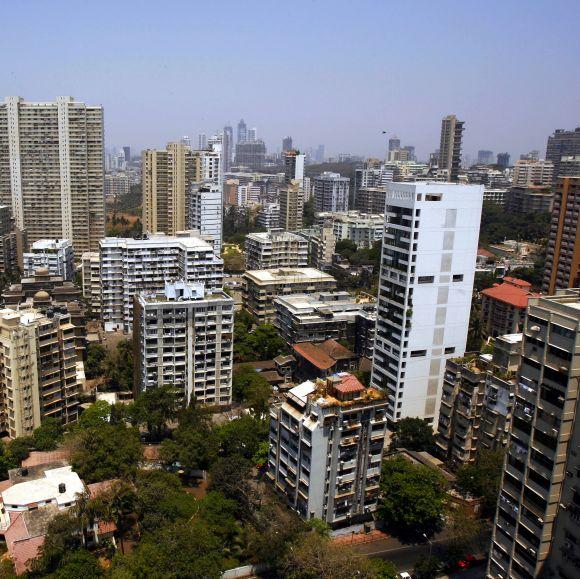
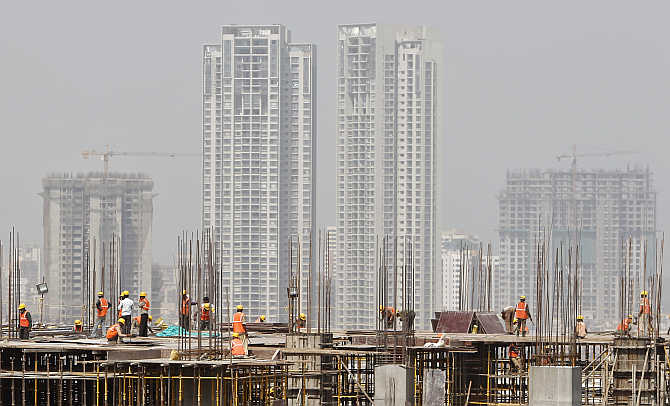
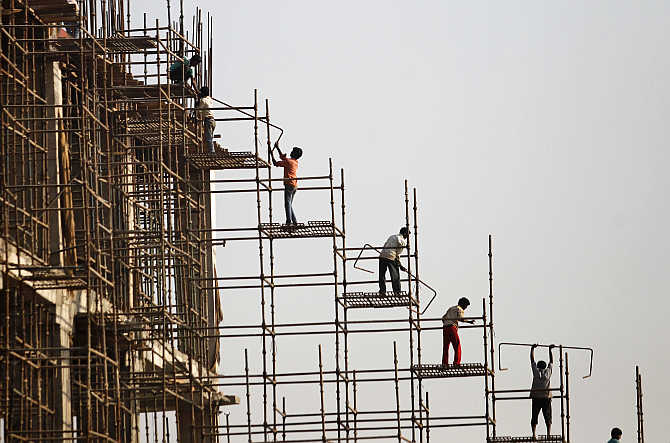

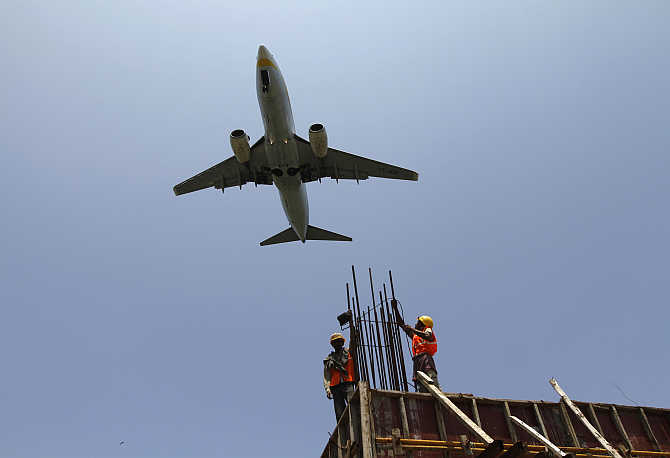
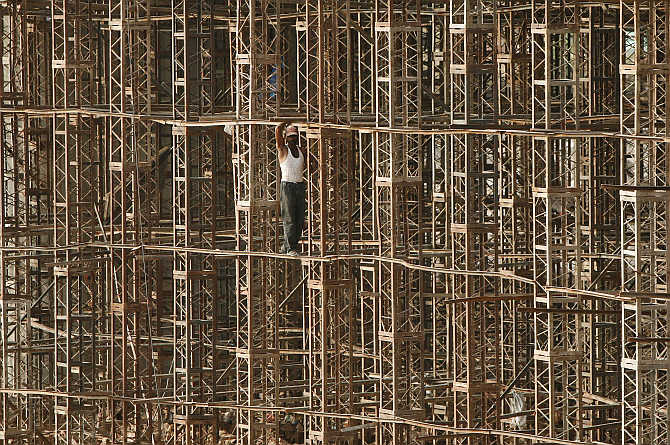
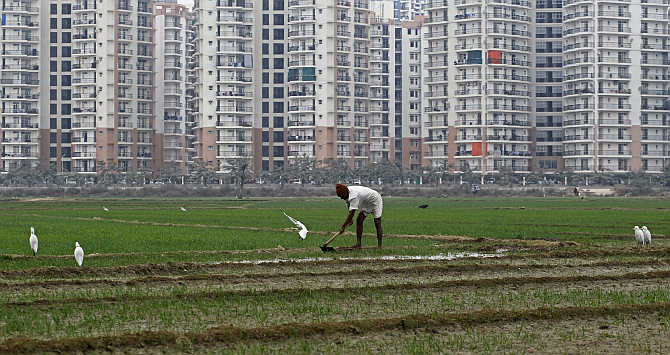

article